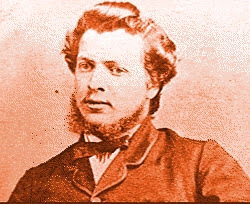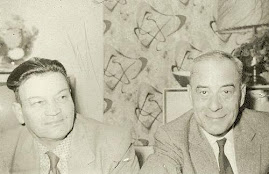Martin, NDP and Opposition Vote Support for Indigenous Peoples Declaration
News Release for SooNews.ca
Wednesday, April 9, 2008, 10:54AM
http://www.soonews.ca/viewarticle.php?id=16685
OTTAWA – Recognizing the urgency to address historical and present injustices, Sault MP Tony Martin, NDP and Opposition MPs voted 148-113 Wednesday to support the UN Declaration on the Rights of Indigenous Peoples and implement its standards.
Conservative MPs opposed the motion.
“This declaration outlines the minimum human rights standards necessary for the dignity, survival and well-being of the world’s indigenous peoples. It has been under discussion at the United Nations for more than two decades,” said Martin. “First Nations, Métis and Inuit people as well as many NGOs are pressuring Canada to support the Declaration and to ensure its passage during the 61st UN Assembly.”
““Ordinary people in Canada have seen first-hand the problems that arise when the government has the power to arbitrarily decide who is and isn’t an indigenous person. The Conservatives’ decision to not support the Declaration is a stain on our reputation around the world. ”
Before the vote, Victoria Tauli Corpuz, chairperson, United Nations Permanent Forum on Indigenous Issues, wrote MPs to congratulate the Canadian Parliament for setting the stage for decision-making on what Canada should do with the UN Declaration.
“I strongly believe that the adoption and implementation of the Declaration will hasten genuine reconciliation efforts between governments and indigenous peoples. It provides a good impetus for governments to plan jointly with indigenous peoples on how peace, security, human rights and sustainable development can be achieved in indigenous peoples' territories.
Ontario ending centuries of discrimination with historic agreement: Metis
http://canadianpress.google.com/article/ALeqM5iJaVEELI-Au2NQSP733f-TkbIG3Q
TORONTO — Centuries of discrimination will come to an end through a historic agreement with Ontario that helps pave the way for the Metis to set up their own health-care centres, children's services and even get a cut of the province's gaming revenues, Ontario's Metis Nation said Tuesday.
Tony Belcourt, head of the Metis Nation of Ontario, said the Metis have been ignored and discriminated against for years in the province. Those attitudes, in turn, have been perpetuated by politicians and bureaucrats, he said.
But the Ontario government's willingness to negotiate a separate accord from other aboriginal groups allows the province's 73,000 Metis to finally be treated as a self-governing nation, he said.
"I can't underscore enough the importance of simply recognizing the Metis Nation in this province. Nobody but the Metis people has any idea of the impact that not being recognized has on our people," said Belcourt.
People have often ashamed to identify themselves as Metis for fear of discrimination at work or on the street, Belcourt said.
"The racial discrimination in this province against the Metis people has been palpable," he said.
"It's unfortunately reflected in attitudes of people who have been elected to (government) and the people who work as public servants over the years. What the government is doing today is, in fact, a bold step."
Saskatchewan leads the country with its own Metis act carved into legislation that includes a recognition of self-governance and system of revenue sharing. Alberta is the only other province with a signed framework agreement similar to the one Ontario is now negotiating.
Ontario Metis have a long list of priorities including revenue sharing, increased health-care services in northern communities and equal consultation on the exploitation of natural resources, Belcourt said.
"I don't for one second think it's going to be easy for the minister (of aboriginal affairs) to sell all his colleagues on some of the measures we're going to be pushing for," said Belcourt, adding that doesn't diminish the importance of simple recognition.
"This now allows us to hold our heads high. I've been fighting in the trenches for 40 years. I want to tell you, this is an amazing day."
Aboriginal Affairs Minister Michael Bryant said the Metis have been ignored by the province for far too long. The Ontario legislature itself put a $5,000 bounty on the head of famed Metis leader Louis Riel 138 years ago, he said.
But with this separate accord, Bryant said the government is now recognizing the sovereignty of the Metis and starting to address their priorities - whether that be sharing gaming revenues or spelling out hunting and fishing rights.
It's part of a collaborative approach that's "new and overdue," Bryant said.
"It's recognition and respect," he said. "The absence of that in the past has meant an ineffective approach and an ad-hoc, responsive, defensive approach. This allows us to have a real relationship."
But critics say they aren't holding their breath.
Conservative Bob Runciman said entering negotiations with the Metis is a "good first step" that's been a long-time coming. The Liberals are good at making announcements with great fanfare but they are less successful at coming up with concrete results, he said.
"Before we start tossing bouquets, we want to see what the end result is," said Runciman, adding the Metis should have a signed agreement by the end of the year.
NDP Leader Howard Hampton said the Liberals' record is extremely poor when it comes to following through on their pledge to forge a new relationship with Ontario's aboriginal people.
By announcing they intend to start negotiations with the Metis, Hampton said the Liberals are just diverting attention away from the jailing of six aboriginal chiefs and councillors protesting a mining development in northern Ontario.
"I hope for the Metis nation of Ontario it becomes more than that," Hampton said. "But there was not much substance to this. It is basically an announcement to hold discussions about possible future discussions."
Remembering Laurent Garneau and Métis heritage
http://www.expressnews.ualberta.ca/article.cfm?id=9247
April 9, 2008 - Edmonton - When the University of Alberta opened its doors in 1908, it may have appeared there was little else on the south bank of the Saskatchewan River than a fledgling frontier town and howling coyotes. But as the life of Laurent Garneau attests, there was a rich history here before Henry Marshall Tory laid down his vision for the uplifting of the people.
Garneau, who homesteaded on land where the university now partly sits and owned a good part of Strathcona, was well known in the area as a successful businessman, Métis activist and accomplished fiddler.
After taking part in Louis Riel's Métis rebellion of 1869-70, Garneau left Manitoba with his family, arriving in Strathcona in 1874. There, he was arrested and imprisoned for six months for refusing to obey a martial law ordering inhabitants to take refuge in Fort Edmonton to protect them from an Aboriginal attack. Ironically it was Chief Papasschayo of the Papaschase tribe who took Garneau's family, including a wife and 11 children, under his wing.
Garneau went on to acquire much more wealth in fur trading, wood-cutting, ranching and land speculation; he even made charcoal for the Hudson Bay Company. But a land dispute forced him to move to St. Paul in 1896.
While dramatic, these details only scratch the surface of lives lived in the Edmonton area before the university broke ground.
"There is a tendency to forget, when we celebrate centenaries, that there was something else here before," said Nathalie Kermoal, organizer of a conference this week on Laurent Garneau and the Métis. "People were living here and helped to shape our history, and that legacy shouldn't be forgotten."
Kermoal says the conference is not designed only to examine "what went wrong" for the Métis in history, it's also about celebrating a valued legacy. "Garneau made a name for himself and was very involved in both the Métis and francophone communities," says Kermoal.
"He was an excellent musician, always in demand. He was also an astute businessman, owning cattle and a sawmill. And he was also a political person, fighting imperialism."
The Garneau conference, co-sponsored by Campus Saint-Jean's Canadian Studies Institute, the Faculty of Native Studies and the Association canadiennes-française de l'Alberta opens Thursday night at Alumni House. Friday it moves to Campus Saint-Jean to take up three areas important to Garneau in his own lifetime: art, social and economic development, and political and legal issues.
The program will include an exhibit of artwork by Laurent's great-great-grandson David Garneau and roundtable discussions on Métis land settlements, the pardoning of Louis Riel, the status of the Michif language (a combination of French and Cree), and Métis Aboriginal rights and identity. There will also be a performance Friday evening by the Métis Dance Group of Edmonton and La Girandole, a French-Canadian dance troupe.
Aside from looking back, says Kermoal, one purpose of this conference is to build stronger connections between today's francophone and Métis communities.
"It's a way to celebrate what the Métis have done, not only in Edmonton but also for Canadian history.
"Laurent Garneau's life illustrates the challenges that the Métis had to deal with in the 19th and early 20th centuries."
To register, contact Marie-Claude Levert at 485-8635 or email levert@ualberta.ca .
Friday, April 11, 2008
Metis News and Noteworthy
Posted by
MetisMama
at
12:29 AM
![]()
![]()
Subscribe to:
Post Comments (Atom)





No comments:
Post a Comment